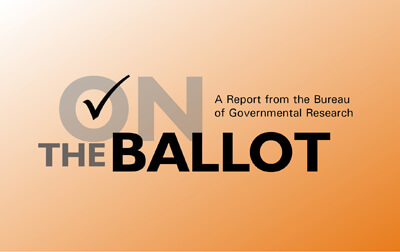
New Orleans voters reject Cantrell’s tax proposals
By WDSU Digital Team
Source: WDSU
December 5, 2020
In Orleans Parish, multiple property tax measures were on the Dec. 5 ballot.
New Orleans overwhelmingly rejected Mayor LaToya Cantrell’s near-term fiscal strategy Saturday when they voted down three property tax dedication changes as well as a French Quarter sales tax renewal. Earlier in the week, the mayor said layoffs of city employees were likely if the property tax proposals failed.
Cantrell’s plan would have shifted around millages collected for infrastructure, libraries, housing and economic development. Her plan would have created a dedicated tax revenue stream to cover early childhood education programs that are currently paid for from the city’s general fund.
Overall tax bills would not have changed had all three proposals been approved. Tax increases for infrastructure, housing and economic development would have been offset with a decrease to a library millage.
Cantrell’s proposal that drew the most criticism was a cut to city library funding in Proposition 2. The Bureau of Governmental Research pegged the reduction at 40% of current levels.
The proposals called for the taxes to be collected through 2040. Without them, Cantrell said there will be a $25 million hole in the 2021 city budget. Critics have countered that next year’s city spending plan was calculated and approved with the current millages, which don’t lapse until the end of 2021.
Unless voters renew or replace them before then, property owners will see a $16 decrease in their tax bills for every $100,000 in property value. The city is projected to collect $23.4 million from the three taxes in 2021.
The Bureau of Government Research opposed all three proposals, arguing there were not enough specifics from City Hall about how the tax revenue would be spent. The nonprofit group also echoed its call for a thorough review of the city’s tax structure with the goal of redirecting revenue to priorities without raising taxes.
A quarter-cent sales tax that paid for additional security in the French Quarter will expire Jan. 1. Voters who live in the historic neighborhood opted against Cantrell’s proposal to take half the money for security officers who would handle quality of life matters but could not arrest anyone.
The tax’s failure leaves the future of supplemental Vieux Carré security in question. Louisiana State Police patrols of the French Quarter, funded in part through the tax charged on all purchases and rents there, will cease at month’s end.
New Orleans & Co., a private tourism marketing group, and the Morial Convention Center had also pitched in to cover the cost of troopers. They’re pulling back their contributions because the coronavirus pandemic has reduced their revenue streams to a trickle.
The future of the French Quarter Economic Development District is also in peril. The state-created body was put in place five years ago when the tax was originally approved. Its oversight board, the French Quarter Management District, publicly opposed Cantrell’s plan and requested residents vote against it. The agency has used part of the tax money for its own patrols, staffed with officers who can make arrests.
Including Saturday’s results, five of the seven tax proposals Cantrell has put before voters since she took office in May 2018 have failed. A property millage dedication for senior citizen services and an infrastructure tax were rejected last year. City voters approved a short-term rental tax and a proposal that restructured property taxes for parks, recreation, the Audubon Commission and City Park.
Fair Use Notice
This site occasionally reprints copyrighted material, the use of which has not always been specifically authorized by the copyright owner. We make such material available in our efforts to advance understanding of issues and to highlight the accomplishments of our affiliates. We believe this constitutes a “fair use” of any such copyrighted material as provided for in section 107 of the US Copyright Law. In accordance with Title 17 U.S.C. Section 107, the material on this site is available without profit. For more information go to: US CODE: Title 17,107. Limitations on exclusive rights: Fair use. If you wish to use copyrighted material from this site for purposes of your own that go beyond “fair use,” you must obtain permission from the copyright owner.
